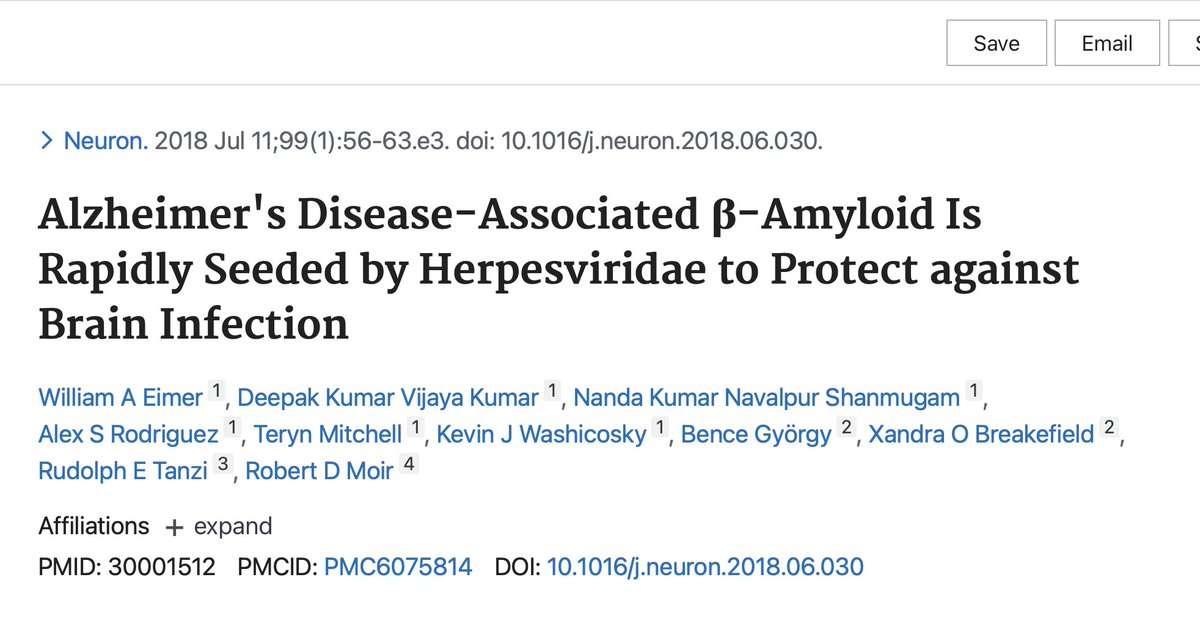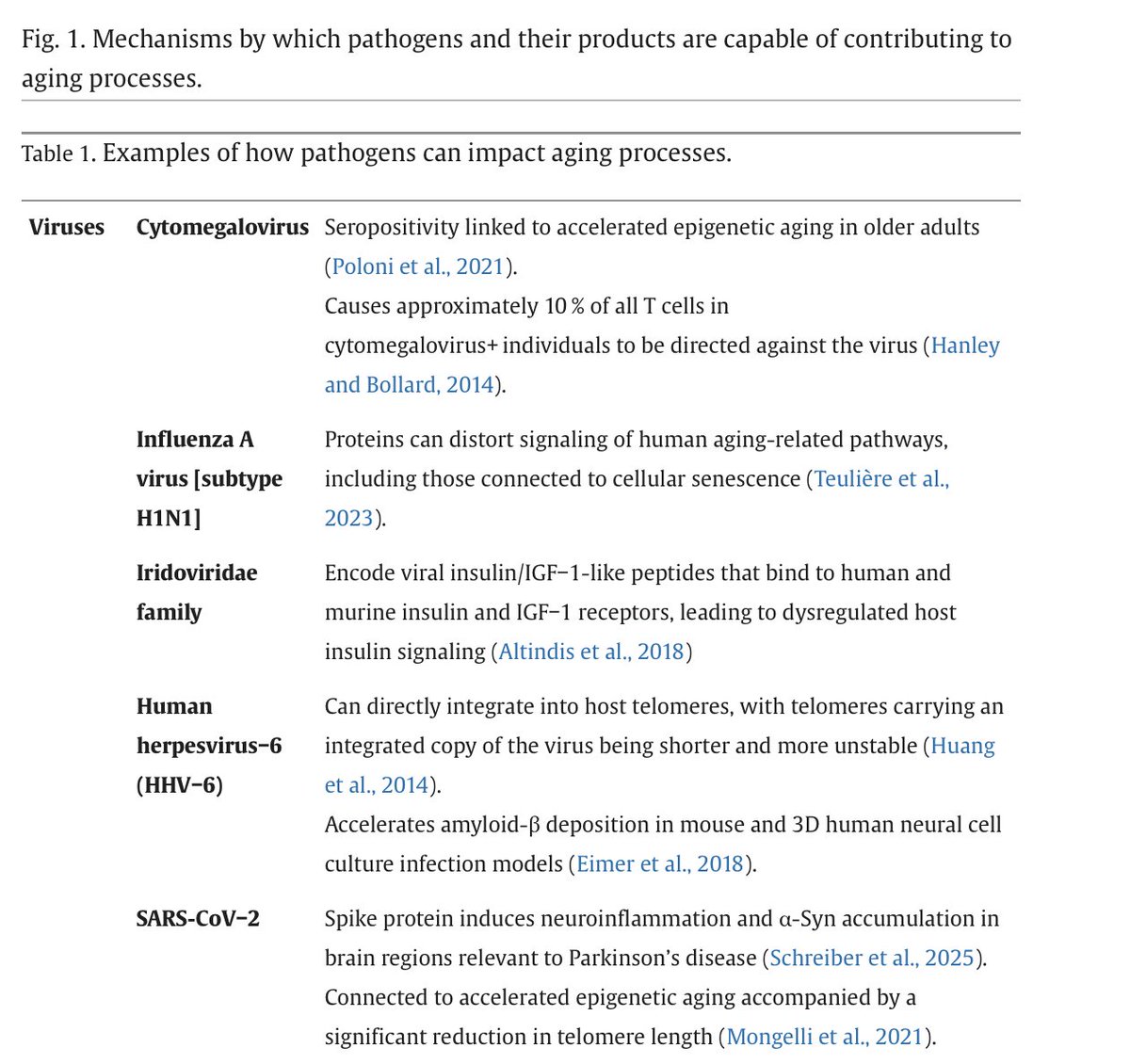Cool paper 👉 They analyze infection/microbiome in #Alzheimer's from an evolutionary perspective👆and examine how aspects of #globalization can support to the ability of microbes in the gut, oral cavity, nasal cavity + brain to drive Alzhiemer's pathology: ncbi.nlm.nih.gov/pubmed/31180143 



As we have done in several of our papers on #infection in chronic inflammatory disease 👉 They point out how international airline travel, population density in cities + high levels of air pollution can contribute to the spread of pathogens capable of driving Alzheimer's symptoms
I found this study they cite particularly interesting 👉 Children chronically exposed to high concentration of air #pollutants in Mexico City exhibited systemic + brain inflammation, amyloid deposition + breakdown of the blood brain barrier: ncbi.nlm.nih.gov/pubmed/26829765 

They also found enlarged Virchow-Robin spaces in some of the Mexico City children exposed the air pollution 👉 Interestingly, those the same spaces @MBVanElzakker's team has found preliminary evidence of in the brains of patients with #ME/CFS
• • •
Missing some Tweet in this thread? You can try to
force a refresh










